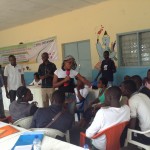
Côte d'Ivoire’s post-election crisis in 2010 and 2011 pitted supporters of former President Laurent Gbagbo against those of current President Alassane Ouattara. The two villages of Anokoua Kouté and PK18 serve as prime examples of this persistent divide. During the crisis, Anokoua Kouté supported Gbagbo and PK18 supported Ouattara, reflecting the ethnic divide between the neighborhoods.
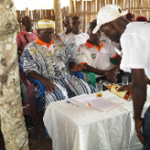
In western Côte d'Ivoire, disputes over land ownership frequently lead to violence. Informal land lease or sale arrangements, especially when involving individuals not considered indigenous to the community, generate feelings of resentment and exploitation that sometimes boil over into open conflict. But two villages recently chose a different path to resolve their disputes
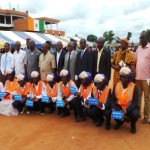
July 2014—In Bouaké, Côte d'Ivoire, there are approximately 19,000 motorcycle taxi drivers, many of whom are ex-combatants. Following the 2010-2011 post-electoral crisis, ex-rebel officers continued to manipulate their former forces, now turned “moto-taxi” drivers, by forcing them to hand over their daily taxi fares.
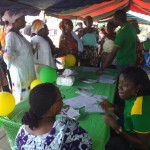
Since the end of Côte d'Ivoire’s post-electoral crisis in 2010, USAID has aimed to promote more effective engagement between citizens and government. In collaboration with the Mayor’s Office in Abobo, USAID, through its Office of Transition Initiatives, helped organize an open house in November 2013 to help women affected by the crisis obtain financial loans for small businesses.
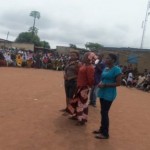
February 2014—The illegal use of public land for private use is a continuing source of tension throughout Côte d'Ivoire. It contributes to perceptions of public officials using their office for personal gain at the expense of the public with impunity.








Comment
Make a general inquiry or suggest an improvement.